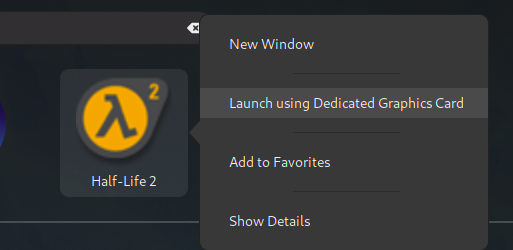So in this trying times (thanks, Corona) I got myself a new employer and a new laptop. A Dell 5591 (a.k.a. heavy boi) but as I saw it has a dedicated GPU and lots of RAM next to a second SSD.. I decided it has to dual boot Fedora and Windows. Here my notes/caveats.
- Have your bitlocker recovery key ready, Fedora plays with the partitions which locks your drive. You need to unlock it only once after the disk has been manipulated but you have to. (or your admin.. or you need a new windows install!)
- disable UEFI Fast/Secure boot in BIOS if you want to run proprietary Nvidia card drivers. (that laptop has a hybrid Intel dedicated / MX130 GPU (optimus?)
- nvidia proprietary driver as described by negativo17 is a lot more stable/predictable than the stuff described at Fedora Optimus or
The installer of the live image is as sweet as ever. Everything works right out of the box, no surprises. No trouble. <3
Automatic partitioning actually does a really good job (I shrank the windows/bitlocker volume a bit so i can install next to Windows, just to prove a point – the installer found this and put itself next to it nicely. (see note about bitlocker above)
- once started the usual things to do are:
- RPMfusion (free, nonfree, steam, nvidia) – choose :)
- subpixel font hinting (slight)
- change scale to 0.9 or 0.95 using gnome-tweak-tool
- decide screen lock / sleep / suspend / lid close (this seems to change with every fedora release)
About this nvidia/intel hybrid thing… there seems to be a lot of things going on wrt prime/optimus/render offloading.. as I am using Negativo17‘s driver implementation the Gnome feature does not quite work, yet.. at least I have not seen the card work for applications launched that way. There is a lot of information on https://negativo17.org/nvidia-driver/ and it is still a lot less work and actually works compared to the manual kernel module hacking and playing with runlevels as indicated at the RPMfusion website ;)

using the flag
__NV_PRIME_RENDER_OFFLOAD=1 __GLX_VENDOR_LIBRARY_NAME=nvidia [appname]
to start an application actually works!
the website hints to edit the steam launch options adding “DRI_PRIME=1 %command%” but for me it is the NV_PRIME_RENDER… string that does the magic. Needs more testing with 32 bit libs.
[andreas@NB-AR ~]$ __NV_PRIME_RENDER_OFFLOAD=1 __GLX_VENDOR_LIBRARY_NAME=nvidia glxspheres64
Polygons in scene: 62464 (61 spheres * 1024 polys/spheres)
Visual ID of window: 0x2c8
Context is Direct
OpenGL Renderer: GeForce MX130/PCIe/SSE2
61.419987 frames/sec - 68.544706 Mpixels/sec
60.036362 frames/sec - 67.000580 Mpixels/sec
but I haven’t gotten it to work for steam, yet. may be caused by 32 bits and that we are actually running ubuntu stuff here. :)
[andreas@NB-AR ~]$ __NV_PRIME_RENDER_OFFLOAD=1 __GLX_VENDOR_LIBRARY_NAME=nvidia steam
Running Steam on fedora 31 64-bit
STEAM_RUNTIME is enabled automatically
Pins up-to-date!
/home/andreas/.local/share/Steam/ubuntu12_32/steamguess I have to amend this string to the .desktop files for the application ( ~/.local/share/applications) or whereever this is set up
I did encounter some suspend issues (device freezing/black screen after resume) so I did follow this article and enabled the traces.. then changed the RTC from CEST to UTC (as recommended) – so far no problems anymore. (but they also hint to the nvidia driver…)
# timedatectl
Local time: Sun 2020-03-29 16:09:13 CEST
Universal time: Sun 2020-03-29 14:09:13 UTC
RTC time: Sun 2020-03-29 16:09:13
Time zone: Europe/Amsterdam (CEST, +0200)
System clock synchronized: yes
NTP service: active
RTC in local TZ: yes
Warning: The system is configured to read the RTC time in the local time zone. This mode cannot be fully supported. It will create various problems with time zone changes and daylight saving time adjustments. The RTC time is never updated, it relies on external facilities to maintain it.
If at all possible, use RTC in UTC by calling 'timedatectl set-local-rtc 0'.
# timedatectl set-local-rtc 0
# timedatectl
Local time: Sun 2020-03-29 16:09:47 CEST
Universal time: Sun 2020-03-29 14:09:47 UTC
RTC time: Sun 2020-03-29 14:09:47
Time zone: Europe/Amsterdam (CEST, +0200)
System clock synchronized: yes
NTP service: active
RTC in local TZ: no
# echo 1 > /sys/power/pm_trace
# systemctl suspend
